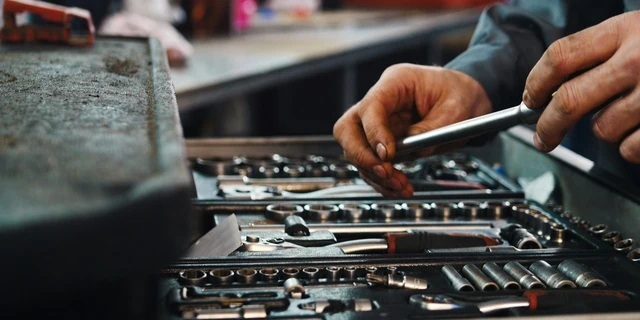Are you getting started with diesel mechanics and wondering which tools you need? There is a wide range of diesel mechanic tools you need for your toolbox, including wrenches, adapters, Allen wrenches, extensions, and more. This article will discuss 15 must-have diesel mechanic tools.
1. Sockets and Ratchets
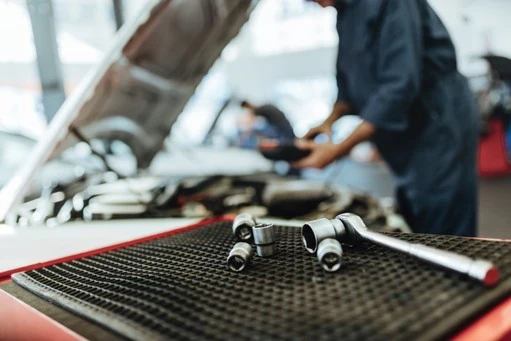
Although sockets and ratchets generally do the same job as wrenches when it comes to tightening and loosening fasteners, there are instances where sockets and ratchets are better suited.
With sockets and ratchets, you don’t have to worry about repositioning the tool like you would need to do with a wrench. These quality tools are most suitable in tight corners where you cannot turn a wrench full circle.
Ratchets are available in different drive sizes to operate different sockets. When starting, you want to make sure to have ¼ inch, ½ inch, and 3/8 inch ratchets in your toolkit.
There are also geared vs gearless models. Geared models have a higher teeth count, enabling you to operate it with a small swing. They are a great option when working in tight corners. On the other hand, gearless models are fitted with a roller bearing and require smaller movements when fastening.
Most have a lock mechanism with a quick-release button to disengage. There are also jointed and flexible head ratchets whose head angle can be adjusted when working in tight areas.
Sockets also vary in design. Some are deep and are suitable for reaching recessed fasteners or nuts on a threaded bolt. Others are shallow and are suited for areas with little clearance.
Impact sockets are handy tools for a diesel mechanic, as long as they are used safely. You should never use a regular hand tool on an impact wrench because it can be dangerous. Impact sockets help ensure safety in the workplace and are designed to withstand the vibration and shock of each impact. This prevents cracks and breaks as you work.
Universal sockets work with all types of fasteners. Flex sockets have a built-in joint that enables you to use the handle at different angles.
You want to incorporate a variety of ratchets and sockets in your toolkit. You may buy a socket and ratchets set with various tools. They range from small 10-20 piece sets to larger sets with 300 pieces.
In a nutshell, the must-have rackets and sockets you should have handy are as follows:
- ¼” drive socket set
- 3/8” drive socket set
- 1/2” drive socket set
- Universal joint
- Ratchet handle
- Breaker bar
- Short, medium, and long extensions
- 3/8” -3/4” Sq Dr flexible socket
- Sq Dr stud remover tool
2. Wrenches
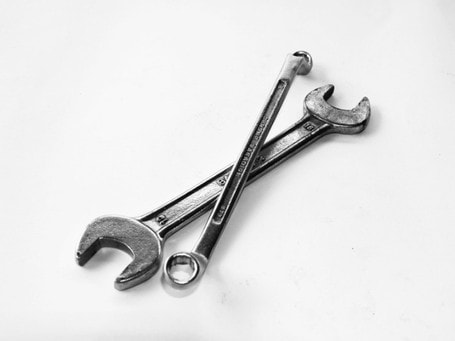
Wrenches are among the most commonly used tools by a diesel mechanic. You will need a variety of wrenches in regards to size and type.
The most essential wrench types include:
- Adjustable wrench
- Box wrench
- Ratchet wrench
- Combination wrench
- Torque wrench
- Box wrench
- Socket wrench with handle
- Torx key
Some of the must-have wrenches you should have in your tool box include:
- 3/8” ratchet
- 5/16” – 1 ¼” wrench set combination
- 8” and 12” adjustable wrench
- 8mm to 22mm metric Allen wrench
- 3/8” -3/4” standard flared nut
- 1”- 8” adjustable wrench
- 1” – 1-foot adjustable wrench
- T-15 to T-55 Torx wrench set
- 10-inch to 14-inch pipe wrench
- 20-inch reversing chain wrench
- Filter wrench
3. Screwdrivers
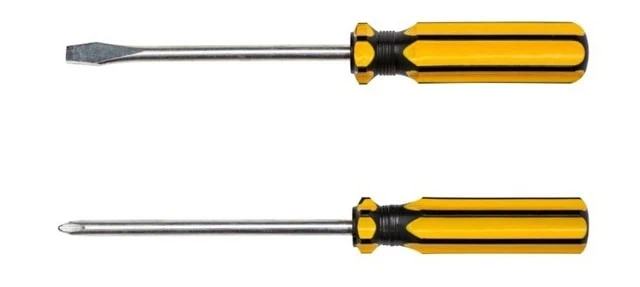
Screwdrivers vary in their tip types, handle grips, length, design, and type of materials used to make them. The most essential screwdrivers for your kit include:
- Short, medium, and long Philips screwdrivers
- Flatheads
- 1”, 6”, 9”, 12”, and offset screwdrivers
- #2 1-inch screwdrivers
- #1 6-inch
- #2 6-inch
- #3 1-foot
- 050” -3/8’ hex key set with ball end
- 5mm to 10mm hex key set with ball end
- Torque bit driver set (T10, T15, T20, T25, T27, T40, and T45)
A good set of screwdrivers are the basic tools necessary for any tool kit. A heavy equipment mechanic and truck and diesel technicians, for example, should have screwdrivers, a long picks set, and screw extractors in their tool kit.
4. Measuring Tools
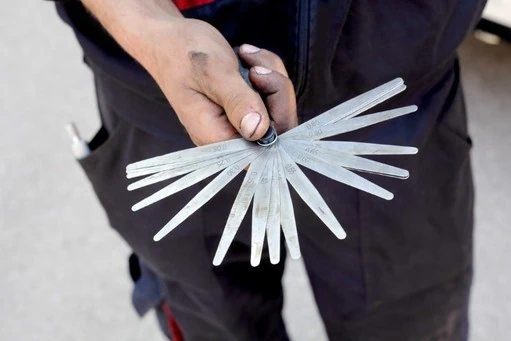
The two main measuring tools you need are a measuring tape and a feeler gauge. A tape measure comes in handy when taking longer measurements. A feeler gauge provides accurate measurements for gap widths between two objects close to each other.
Therefore, you will need the following measuring tools:
- 12” tape measure
- Standard 0.0015” – 0.035” feeler gauge offset
- Metric 0.0015” – 0.035” 35-blades feeler gauge set
5. Pliers
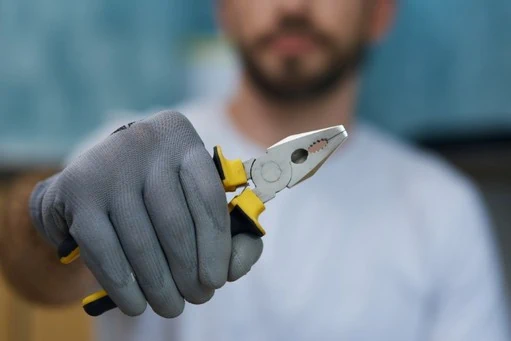
Pliers have a wide range of applications for diesel mechanics, including holding small objects, loosening and tightening fasteners, and cutting and shaping wires. They are available in a variety of sizes and types. You should have the following pliers in your tool kit:
- Standard pliers
- Needle nose pliers
- Wire stripper
- Diagonal cutter
- Side cutters
- Flat with 1 ¾” snap ring pliers
- Small reversible snap ring pliers
- Large reversible snap ring pliers
- Brake spring
- Battery nut
- Crimper
- 10” curved jaw vise grip
6. Hammering Tools
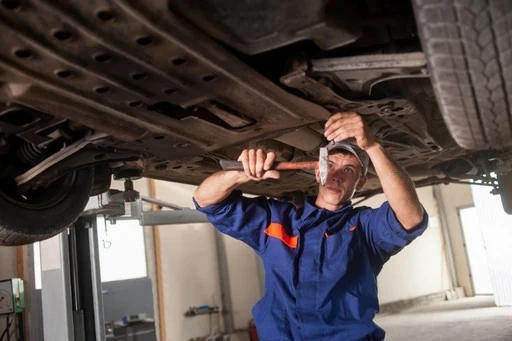
There are over 50 types of hammers. However, as a diesel mechanic, you will mainly need a machinist’s class of hammers. They are lightweight and can be used to dent or chip metal.
Since you do not need too much force when striking car parts or diesel-powered machine parts, they ensure you do not cause damage or deformation.
Therefore, the essential hammering tools are:
- 16 oz. and 24 oz. ball peen hammer
- Cross peen hammer
- Straight peen hammer
- Punch & chisel set with a center punch
- ¾” X 18” long cold rolled drift
- ¾” X 18” long brass drift
7. Diagnostic Tools

These will help you identify the exact issues and ascertain their resolution. The must-have diagnostic tools you should have when working in diesel technology include:
- 12V multi-meter
- Inspection mirror
- Magnetic pick up too
- Radiator hose pick
- Circuit tester
8. Files

You can use a file to cut, trim, or finish various parts of an engine. As a diesel mechanic, you will mostly require files designed for metals. They are available in different lengths, shapes, and grit levels. Therefore, you should have the following types of files in your tool box:
- 12-inch fine
- 6-inch triangle
- 12-inch coarse
- Half-round
- Round
9. Punches
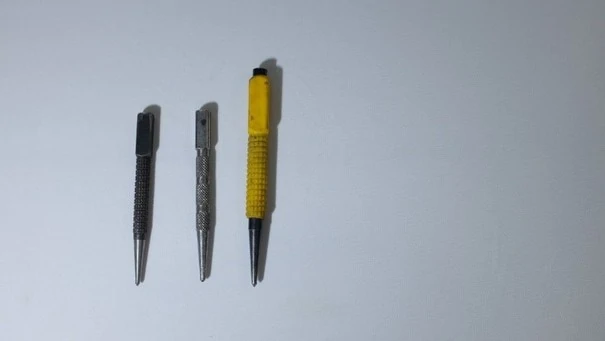
Alongside chisels, you will need a wide range of punches to make holes or form indentations. The most essential ones are:
- 3/8” blade to 5” cold chisel
- 5/8” blade to 6” cold chisel
- 7/8” blade to 7” cold chisel
- 3/16” blade to 3/8” pin
- Starter 3/16” blade to 3/8”
- Brass punch
- Center 5-inch
10. Air Tools
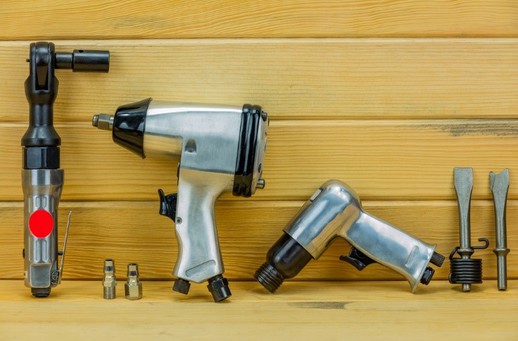
Air tools have a wide range of applications, including drilling, sanding, and spray painting. They are lightweight, portable, and easy to use. There are different types of air tools, and the most essential for diesel mechanics are:
- ½”, 3/8” and ¾” impact guns
- Air-powered drill
- Pneumatic socket wrench
- Pneumatic grease gun
- Pneumatic stable gun
- Hydraulic riveter
- Pneumatic blower
- Paint sprayer
11. Lighting Tools
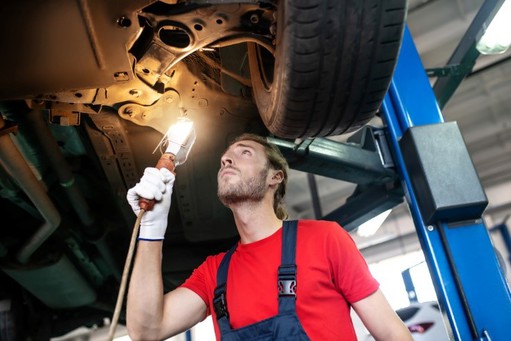
While your garage may have lights, they may not be adequate when working on hidden parts or illuminating small parts. That is why you need supplementary light:
- Handheld torch
- Headlamp
- Portable light
12. Tire Pressure Tools
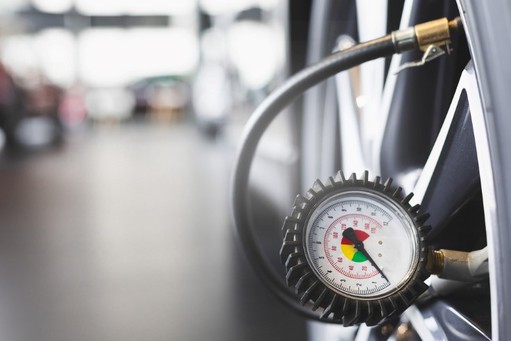
It is important to have an air compressor or tire inflator within reach. Therefore, invest in:
- 120 psi tire tester or tire gauge
- Dual foot air chuck
13. Cleaning and Prep Tools
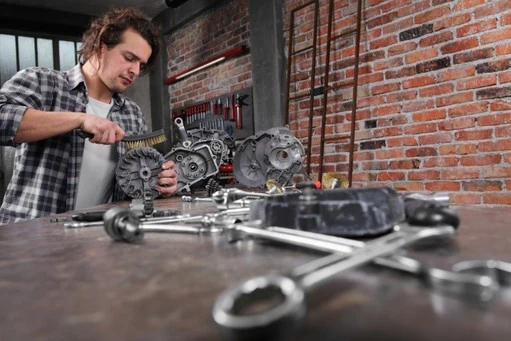
- 1-inch wide gasket scrapper
- Rigid carbon scrapper
- Full-size wire brush
- O-ring pick
- Blowgun
- Batter terminal cleaner 12: X 24T hacksaw blade
14. Tool Box and Socket Drivers
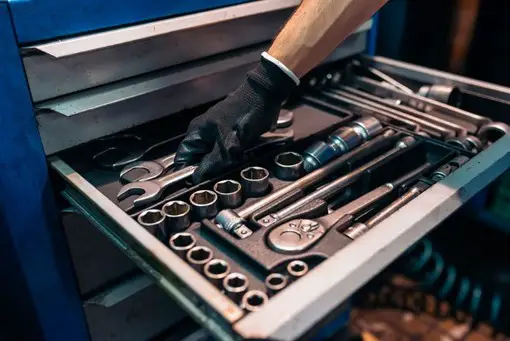
Since it is easy to misplace sockets, the socket dividers ensure that you store them safely. These help to organize your tools for easy access and retrieval. They also help to prevent damage to your tools.
15. Personal Protective Equipment (PPE)
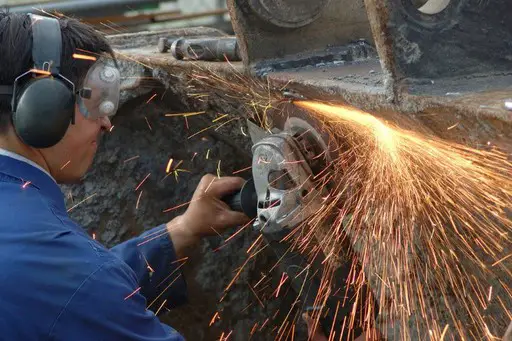
PPE is essential for a diesel mechanic. If you work for a company or under someone else, they will likely provide the PPE you need. However, you may find that they are not the right fit for you. In which case it is best to invest in your own.
The must-haves include:
- Face shield
- Safety glasses
- Gloves
- Safety shoes
- Hearing protection
Although there are many cheap options for safety glasses on the market, it is best to invest in higher quality glasses with anti-fog properties at a slightly higher price.
When working on vehicles and diesel engines, you will encounter various elements, e.g., extreme heat, oil spills, water, oil, and corrosive materials. A good pair of mechanic gloves help keep your hands safe as you work. They also allow you to achieve more precision when screwing nuts and bolts or working with smaller objects.
There is a wide range of mechanic gloves on the market to choose from. They are either reusable or disposable. Disposable mechanic gloves are mostly made of latex or nitrile. They are most suitable for light-duty tasks such as changing the oil and refilling fluids.
Reusable mechanic gloves are most preferred as they are durable and can be used for light and heavy-duty tasks. Most are made of leather, rubber, or vinyl. Leather is preferable as it is durable, difficult to scratch, and corrosion-resistant.
Diesel mechanics often overlook face shields. Yet, they offer added protection and may make the difference between going home with brake fluid-filled eyes or not. You should wear one on top of your eyeglasses when doing tasks that involve flying debris, metal chips, shavings, and hot sparks.
Finally, you should also have a good pair of safety shoes. They may be pricey but worth it. The right safety shoe will offer your foot and arch support to minimize fatigue and feet and back it. They should be non-slip.
Buying Tips for Buying Diesel Mechanics Tools
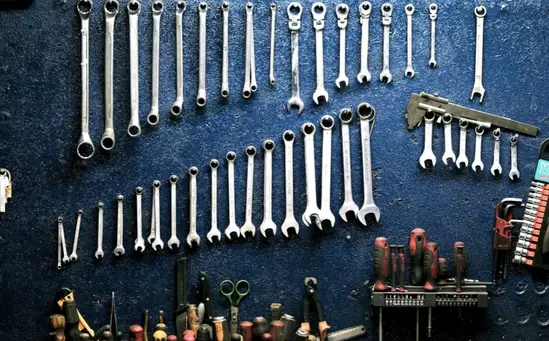
Popular Brands Are Not Necessarily the Best
As you shop for diesel mechanic tools, you will find that some brands stand out more than others. There are no guarantees that the most popular brands produce the highest quality products. Less popular brands also don’t necessarily equate to lower quality.
Keep in mind that all brands will wear out with time and frequent use. Check customer reviews for products you are considering to ensure that they are reliable and good quality.
You Don’t Have to Buy Everything Together
Building up the right tool kit as a diesel mechanic takes time. You will most likely not purchase each tool at once. Rather, you will collect the tools you need over time. Start by purchasing your basic tool kit and then set a budget to add to your tool kit each month.
Conclusion
Mastering the right skill set is vital for becoming a good diesel mechanic and achieving automotive service excellence. The other side of the coin is having the right tools for the job. You will need to have a wide range of tools for different tasks.
Remember, this list is not exhaustive. It is only meant to give you an idea of where to start when equipping your tool box and starting your diesel mechanic career.
As you progress in your work, you will get clarity about other essential tools to buy. You may also notice that you don’t need certain tools. With proper care, maintenance, and storage, your tools should last you for a considerable time, proving that the investment is worth it.

